Research @ UVA Engineering
Engineering for a Sustainable FutureEngineering a better future will require the best work of researchers collaborating along the spectrum from the tiniest building blocks of materials through the complex workings of entire societal systems. We work at the micro- and nano-scale in fields like heat transfer, catalysis and 2-D materials to identify fundamental properties of matter. Our goal is not simply to conduct research, but to pursue research with positive global impact.
-
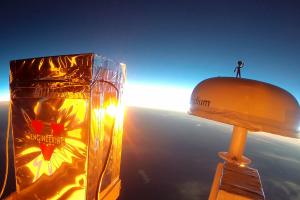
Aerospace Research Laboratory
ARL's current research areas include air-breathing propulsion, hypersonic aerodynamics, optical diagnostic and measurement technique development, particle inertial separation, shock interaction with liquids and particles, and the effects of blast waves on biological systems.Capabilities- Tunnel Sensors
- PIV (Particle Image Velocimetry)
- PLIF (Planar Laser Induced Fluorescence)
- FEA (Finite Element Analysis)
- Density-Based Optical Diagnostics
- TDLAT (Tunable Diode Laser Absorption Tomography)
- External Diagnostics
-
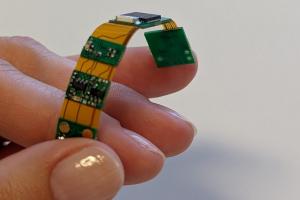
ASSIST Center
The Center for Advanced Self-Powered Systems of Integrated Sensors and Technologies (ASSIST) is an NSF-funded Engineering Research Center established in 2012. ASSIST focuses on creating self-powered sensing, computing, and communication systems to enable data-driven insights for a smart and healthy world. -

Center for Risk Management of Engineering Systems
The UVA Center for Risk Management of Engineering Systems (The Center), recognized worldwide for its contributions to risk, resilience, and reliability, brings together UVA's technical expertise in collaborations across the University. The Center develops theory, methodology, and technology to identify and manage risk for engineering systems. -

Center for Transportation Studies
Our mission is to improve transportation through innovative education and development of future transportation leaders, and to provide practical, relevant, career-building training for transportation professionals. -
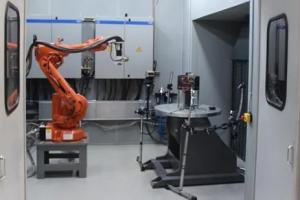
Commonwealth Center for Advanced Manufacturing (CCAM)
CCAM is a public-private research partnership created by the University of Virginia, Virginia Tech, Virginia State University, Canon, Chromalloy, Newport News Shipbuilding, Rolls-Royce, Sandvik Coromant, Siemens, and Sulzer Metco. The center’s overall goal is to accelerate new technologies from initial creation through application and proof of concept and into commercial practice by bringing researchers from the universities and industry into a shared collaborative environment. UVA Advanced Manufacturing Fellow: Richard Martukanitz. -
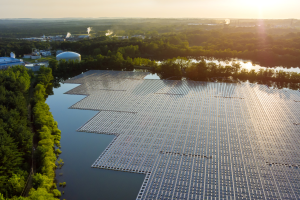
Environmental Resilience Institute
The Environmental Resilience Institute brings together UVA faculty, students, and external partners to conduct trans-disciplinary research at the intersection of environmental change and human wellbeing. The institute’s overarching goal is to identify solutions to some of society’s most challenging and complex social-environmental problems. UVA Engineering Representatives: Andres F. Clarens and Jonathan L. Goodall. -
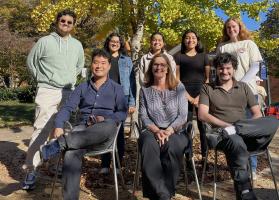
Ford Group
Our research focuses on the application of chemical engineering principles to problems in microbial ecology. The aim is to develop a fundamental understanding of mechanisms underlying microbial behavior which will provide insights for future technological innovation. -

Global Infectious Diseases Institute
The Institute aims to address three major 21st-century concerns: diarrheal disease in children, pandemic threats and the most resistant and urgent infectious organisms known as superbugs. The institute takes an interdisciplinary approach, from the identification and diagnosis of disease to intervention to evaluation, in order to understand the mechanisms of disease and intervene medically, socially and through policy. UVA Engineering Representatives: Roseanne M. Ford and Jason Papin. -
High-Performance Low-Power Lab
The High-Performance Low-Power (HPLP) Laboratory is dedicated to research in the areas of Artificial Intelligence (AI) hardware and edge IoT. Ongoing research spans a wide range of topics, from Processing-in-Memory (PiM), low-power hardware accelerator design, and Smart Dust, to explorations in spintronics and nanoelectronics. -
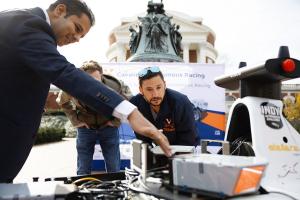
Link Lab
Opened in January 2018, the Link Lab at UVA Engineering is a world-class center of excellence in cyber-physical systems. The Lab consists of more than 250 faculty and graduate students from multiple departments and conducts pioneering work in Robotics & Autonomous Vehicles, Smart and Connected Health, Hardware for IoT, and Smart Cities. -
Materials Informatics Group
Our group focuses on developing novel informatics approaches to accelerate the search and discovery of new materials.Capabilities- Design space guidance via DFT/ML
- Bayesian learning
- Quantitative structure-property relationships
- Materials Informatics
- Design space guidance via DFT/ML
-

MIST Center
The Multi-Functional Integrated System Technology (MIST) Center is a National Science Foundation Industry/University Cooperative Research Center. It's mission is to facilitate integration of novel materials, processes, devices and circuits into multi-functional systems through research partnerships between university, industry and government stakeholders. The UVA site adds expertise in functional materials, solid-state devices, photonics, Terahertz sensing, thermal characterization, multiscale modeling and heterogeneous integration. UVA Site Director: Avik Ghosh.